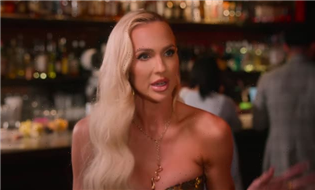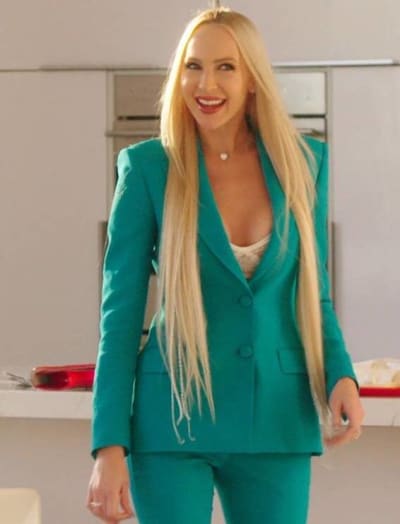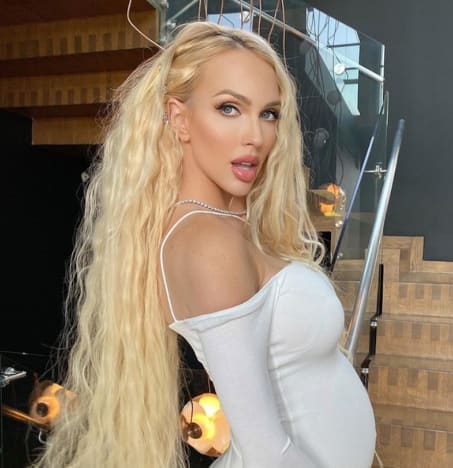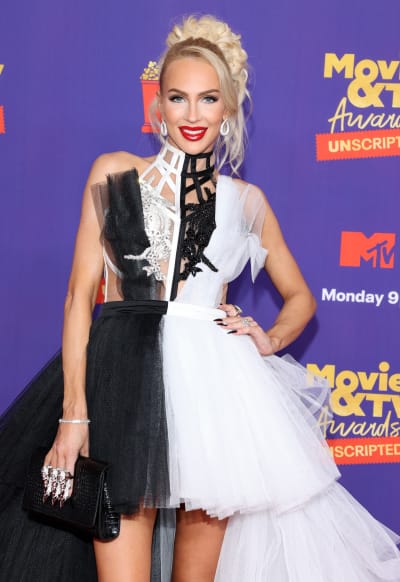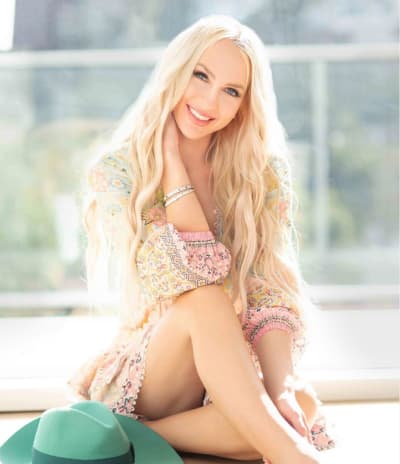Over the weekend, the new season of Selling Sunset returned to widespread social media celebration.
Christine Quinn of course marked the return of the Netflix reality series. She is, after all, one of its stars.
But Christine did more than just remind followers that the show is back.
She also accused the series of setting up a multitude of “fake storylines.” Oh no!
“30 minutes till the launch of #SellingSunset,” Christine Quinn tweeted late last week.
“Enjoy the new season,” she instructed.
“And,” Christine’s tweet concluded, “all of its 5,000 fake storylines!”
Those harsh words were followed by two key emojis.
One was a money bag emoji, the kind that cartoon robbers sling over their shoulders.
The other was a nail-painting emoji, almost universally used when sharing gossip or harsh truths or otherwise providing information.
Naturally, her words got people talking, as did the emoji clues.
She didn’t specify which storylines she accused of being manufactured or otherwise fake.
The bag of money emoji, however, strongly hinted that it had to do with finances … and reports say that this theory pans out.
Page Six reports that there was at least one allegedly fake storyline.
You know that storyline where Emma Hernan accused Christine of offering a $5,000 “bribe” in an effort to poach one of her clients?
An insider claims that this was fakery.
That would certainly fit with Christine’s tweet and her emoji clues.
What better way to hint at a handoff using emojis than a money bag?
And what’s really smart about this tweet is that it’s being talked about so much that Selling Sunset production probably can’t complain too much.
Reality TV fakery is often blown out of proportion.
There are people who genuinely believe that reality TV is literally scripted — that writers write out the lines, that stars practice them like actors do.
What’s funniest about these conspiracy theorists is that most of them … still watch the shows that they believed are rehearsed and staged.
In real life, though, reality TV is adjusted in three major ways: casting, production meddling, and editing.
Casting means finding larger-than-life personalities who will act up on camera and who have poor conflict-resolution skills.
Production can’t predict that a cast member will get divorced by a beloved TV star (as happened to Chrishell Stausse), so some of it’s luck, but some of it is character study.
Up next comes production meddling, most of which simply means asking the right questions.
Sometimes, production will ask people to repeat something (even if just because of background noise), address a topic, or speak with more energy.
Mostly, their job is to coax the reality stars into saying what they’re thinking anyway — the best producers barely have to be intrusive to get TV gold.
Finally, there is the editing stage, where hundreds of hours of video are trimmed down into just enough hours to make a season.
A lot of what is cut is boring — moments filmed just in case something interesting happens, with camera crews following the stars all day.
But editing can shape narratives, from erasing sympathetic moments to making it seem like someone cries every day or only discusses one topic.
Any of these (but mostly just the first two) could be responsible for an allegedly “fake” bribery storyline.
With casting, it could mean that Emma made it up. With production, it could mean that producers planted the idea. It would take some pretty fancy editing to conjure up a storyline, though.
If Christine’s Twitter outburst merits enough interest, she might not get into trouble for tweeting it, but she was clearly feeling strongly about this.
Source: Read Full Article
